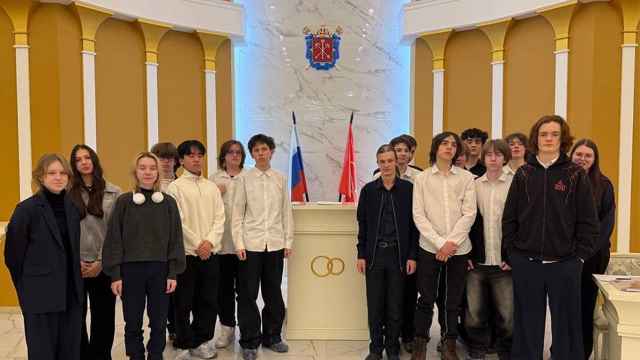
Alexander Ksenofontov
Senior Lawyer
LEVINE Bridge Law Firm
The issue of duration of employment contracts entered into with foreign citizens in relation to Russian labor law often arises in the course of recruiting foreigner employees in Russia.
Some Russian officials have the opinion that foreigners should conclude fixed-term employment contracts. They say such a conclusion makes more sense considering that work permits are valid for a fixed term, and therefore employment contracts should also be for a fixed term.
Nonetheless, we would like to present an analysis from a strictly legal point of view.
The employment contract is the foundation of labor law. In this regard, any employment contract that is entered into is subject to the Labor Code.
Article 5 of the Labor Code states that, after the Russian Constitution, the code has the greatest legal power in the legal regulation of matters pertaining to labor relations. Therefore, other federal statutes containing labor law norms must comply with the Labor Code.
According to Article 58 of the Labor Code, as a general rule, an employment contract is concluded with an employee for an indefinite period. In turn, a fixed-term employment contract can be concluded in only certain cases, a list of which is limited by the Labor Code.
The Labor Code specifies that a fixed-term employment contract can be made only in cases that are provided by Article 59 of the Labor Code or other federal laws.
Meanwhile, neither Article 59 of the Labor Code nor other federal laws, such as Federal Law No. 115-FZ of July 25, 2002, on the legal status of foreign citizens in the Russian Federation, include the nationality of foreign workers as a basis for concluding fixed-term employment contracts with them.
Consequently, concluding a fixed-term contract is not allowed in this case. Employment contracts with foreign citizens must be concluded for a non-fixed period.
Moreover, if, despite this law's provision, a fixed-term employment contract with a foreigner is concluded, the condition of the fixed term of the contract would not apply. In accordance with Article 9 of the Labor Code, the employment contract may not contain conditions that limit the rights or reduce the level of guarantees of workers in comparison with what is already established in the Labor Code. If such conditions are included in the employment contract, then they are not enforceable.
It is hard not to agree that an employment contract for a non-fixed duration is more beneficial to the employee, based on the fact that it provides greater employment stability compared with a fixed-term employment contract.
From this it follows that foreigners have the right to insist on concluding non-fixed employment contracts. Furthermore, according to Article 58 of the Labor Code, if an employer has unreasonably concluded a fixed-term employment contract with a foreigner, the court may then decide that this contract is recognized as being for a non-fixed period.
Meanwhile, it is worth remembering that, for most foreign citizens, Russian labor legislation does provide additional instances for terminating employment contracts.
Paragraph 9, Part 1 of Article 83 of the Labor Code stipulates that an employment contract be terminated in the case of the expiry or withdrawal of an employee's "specific right," in this case the legal right of the foreigner to work in Russia, if it entails the impossibility of performance of duties by the employee under the terms of the employment contract.
The second ground for terminating an employment contract is provided in Paragraph 9.3., Article 18 of Federal Law No. 115-FZ of July 25, 2002. According to this article, in the case of cancellation or expiration of a work permit, if there are no grounds for extending the deadline or if the foreigner has not taken the actions required for such an extension, the employment contract can be terminated.
But the presence in the legislation of these grounds for terminating employment with foreigners does not weaken the value of the non-fixed employment contract as a legal guarantee of the stability of the working relationship.
Appropriate dismissal on these grounds represents a complicated matter. In the case of the expiry or withdrawal of an employee's "specific right," it is necessary that these circumstances arise due to circumstances beyond the will of the parties involved, meaning both employer and employee. In other words, an employer cannot simply fail to apply for the renewal of a work permit, thus resulting in an employment contract being terminated, since the employer bears the responsibility for obtaining work permits for foreign employees.
The second rule of dismissal legislation also included a clause stating that the employment contract shall be terminated if there are no grounds for extending the work permit, or if the foreigner did not undertake the actions required for such an extension to be offered. Again, it is the responsibility of the employer to provide the work permit. Therefore, the option of the employer voiding the contract by simply failing to deliver documents for a new work permit cannot be considered legitimate.
To summarize, it can be argued that for foreign citizens in Russia it is advantageous to have non-fixed employment contracts, as it is ultimately more stable for the employee compared to fixed-term contracts. As a result, it is advisable for employers to closely define the conditions of employment contracts with foreigners. This will reduce liability risks, including administrative responsibility for violating the rules of concluding of an employment contract, as well as liability to the employee.
A Message from The Moscow Times:
Dear readers,
We are facing unprecedented challenges. Russia's Prosecutor General's Office has designated The Moscow Times as an "undesirable" organization, criminalizing our work and putting our staff at risk of prosecution. This follows our earlier unjust labeling as a "foreign agent."
These actions are direct attempts to silence independent journalism in Russia. The authorities claim our work "discredits the decisions of the Russian leadership." We see things differently: we strive to provide accurate, unbiased reporting on Russia.
We, the journalists of The Moscow Times, refuse to be silenced. But to continue our work, we need your help.
Your support, no matter how small, makes a world of difference. If you can, please support us monthly starting from just $2. It's quick to set up, and every contribution makes a significant impact.
By supporting The Moscow Times, you're defending open, independent journalism in the face of repression. Thank you for standing with us.
Remind me later.





